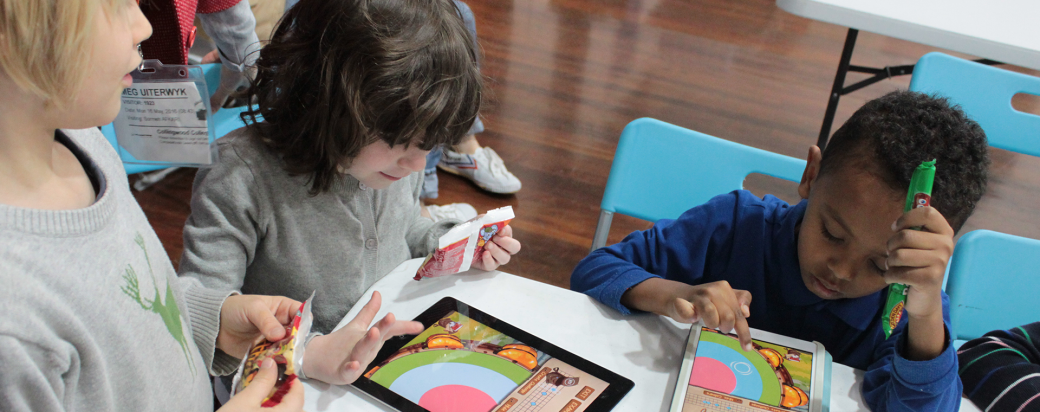
This initiative is part of the 2016-17 WISE Accelerator Cohort.
What they do
Joko’s World offers introductory information about cultures, and games that allow students to incrementally build skills and knowledge through game-based challenges that offer instant feedback. The points they earn are transferrable to the Learning Management System, as a type of game based currency, which unlocks modules to deepen their learning. The skills and knowledge points create a tangible sense of how learning opens the world to the student. Their assessment, instead of an abstract grade, allows them to choose new destinations around the world to explore more learning. Students can follow their own individual learning path as well as participate in classroom activities through the lessons provided in the teacher’s portal. Cultural Infusion’s digital learning projects place intercultural understanding at the center of the school curriculum, demonstrating it as a phenomenon that touches on multiple aspects of culture and ways of knowing.
Why it matters
Culture and education are inherently interlinked. People’s perception of the world and their place within it all started with their education. Culture acts as a guide that provides both the context and the boundaries for educational content. Education however is not only influenced by culture, it plays a role in preserving it. Culture survives through repeated communication from one generation to the next. UNESCO recognises that in a rapidly changing world in which the cultural and social conditions are constantly evolving; traditional ways of life are always being challenged.
Across the world, school curriculums require students to be exposed to a selection of text and media that provide insight into intercultural experiences. The project’s digital learning projects fit perfectly within this framework, in their ability to appeal to and educate children in cultures of the world through culturally insightful and interactive learning games.
Tractions so far
The first apps developed for Joko’s World focused on music of the world. They allow students to:
• Learn music without the need of a specialist teacher
• Incrementally learn musical techniques through game play
• Choose from a rich sound bank featuring three instruments per app
• Learn at your own pace or play together with a group
• Play silently with headphones or through volume controlled speakers
• Tap or blow on a lifelike interface that closely mimics the real instrument
• Learn through an interactive guidebook the stories behind the instruments and the culture with which they relate.
Recent apps for Joko’s World have focused on building supporting geographical knowledge through map, flag and landmark games as well as educating students about the customs and celebrations of other cultures.
By purchasing the apps, users are supporting the project’s work with young people in developing communities; five percent of all the proceeds from the digital learning projects go directly to international community programs. By the end of 2017, the project’s aim would be to establish an implementation footprint in at least two countries and ideally, it will have secured distribution partners in a number of other international territories.
In the future, the project would look for the digital team to be operating at break-even or better, self-funding further development on the apps to achieve their social enterprise mission, and beginning to provide financial support for related non-profit educational activities in areas where commercial sales of the apps is not viable.
To achieve this, Joko’s world would need strong commercial distribution partners in at least ten territories, and be successfully delivering the apps in those territories. The project will have a robust financial and business plan, as well as an online help operation to support the distribution partners and clients. Having consulted with the first generation of users, the project will have strong teacher support materials available online, to support them with ideas and other resources for using the apps in their classrooms.


